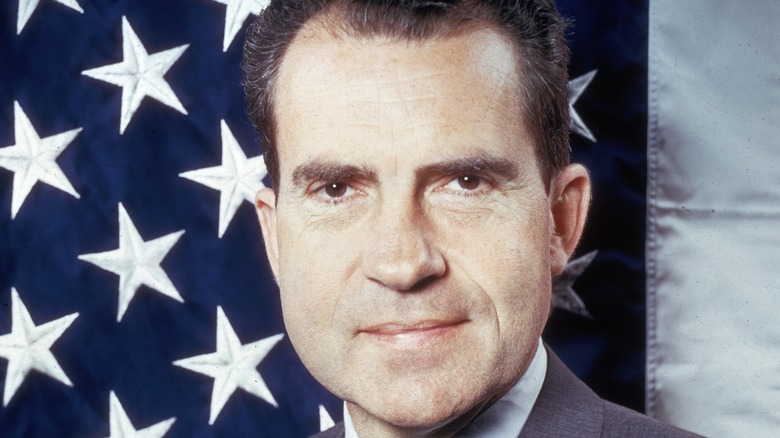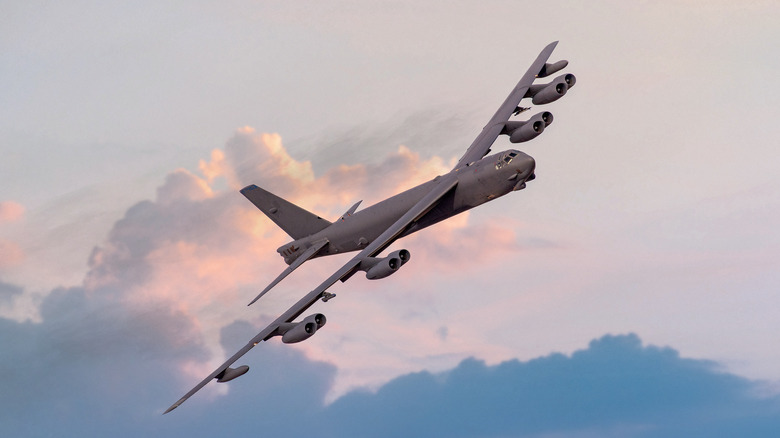Nixon's Biggest Regret As President May Surprise You
Contrary to popular belief, Richard Nixon was (technically) not one of the three U.S. presidents in history to be impeached. In response to the approval of three articles of impeachment that were on their way to be voted upon in the House, Nixon instead became the only president to resign from office (via The Washington Post). The motion against him came on the heels of the Watergate investigation, which had enough backing to convince him that his removal was inevitable.
The proceedings at the very least implicated Nixon in covering up the Republican spying effort if not outright ordering it. Given that Nixon lived for another 19 years before passing away at the age of 81, he was alive more than long enough to understand what history would remember him for (via New York Daily News). Yet when asked in an interview with NBC what he felt his greatest failure was as president, Nixon did not believe it to be Watergate. Instead, it was his perceived failure to handle the Vietnam War that drew the most self-criticism (via Los Angeles Times).
Nixon believed that his restraint cost America the war
During the previous administration, President Johnson both approved the intensive bombing of North Vietnam in 1965 and ordered a halt to the raids in 1968 amid intense debate on their efficacy and morality (via History). When Nixon took office in 1969, he opted to maintain Johnson's moratorium on such massive air raids until 1972 and instead focus on neighboring Laos and Cambodia. In his view, this decision was a principle factor in the American defeat and the greatest stain on his career (via The New York Times).
At the time however, his decision to resume bombing in the North may not have even materialized at all had the 1972 peace talks been fruitful from the outset. Due to the breakdown in the negotiations, Nixon ordered a massive bombing campaign over an 11-day period in December, known as the "Christmas Bombing." The goal was in part to convince the South that American air power would back them if the North broke the agreement (via HistoryNet). Given that America could ultimately not be replied upon, the civilian casualties induced by the raid, and Nixon's dissatisfaction with the outcome, the bombing therefore seems to have benefited nobody.

